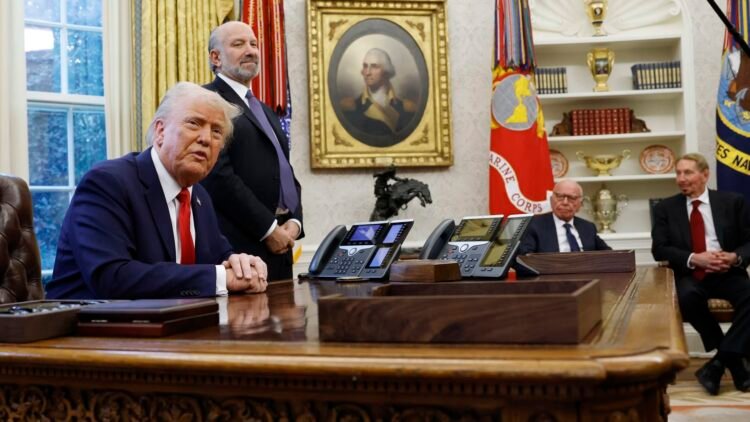WASHINGTON – Peter Navarro, a senior trade adviser to U.S. President Donald Trump, has raised concerns about the growing presence of Mexican cartels in Canada. Speaking at a Politico Live event, Navarro emphasized that while Mexico has been “very cooperative” in joint efforts to curb the flow of fentanyl into the United States, Canada is only now beginning to recognize the need to take stronger action.
Navarro defended Trump’s controversial proposal to impose 25% tariffs on Canadian and Mexican imports, clarifying that the primary objective of these measures is to crack down on drug trafficking rather than to instigate a trade war. While the tariffs were initially scheduled to take effect immediately, the administration has decided to delay their implementation by one month, pushing the deadline to March 1.
According to Navarro, Mexican drug cartels are not only operating within Mexico and the U.S. but are also rapidly expanding their networks throughout Canada. He suggested that Canada has become a significant source of illicit drugs reaching the United States through small, duty-free shipments—a practice enabled by the de minimis exemption in trade regulations. If Trump’s tariffs take effect, this exemption, which allows low-value shipments to enter the U.S. without duties or stringent inspections, will be revoked, potentially disrupting the cartels’ supply routes.
Beyond drug trafficking, Navarro also highlighted additional security concerns regarding Canada’s immigration policies. He alleged that the country has “major visa issues” and has permitted individuals on the U.S. terrorism watchlist to enter the United States, raising alarms about potential threats to national security.
Navarro’s comments come amid rising tensions between the U.S., Canada, and Mexico over trade and border security. While Canadian officials have not yet responded publicly to his remarks, the claims add another layer of complexity to the already strained relationship between the two North American allies. Whether Trump’s administration will move forward with the tariffs or if diplomatic negotiations will ease tensions remains to be seen in the coming weeks.

 English
English



























































